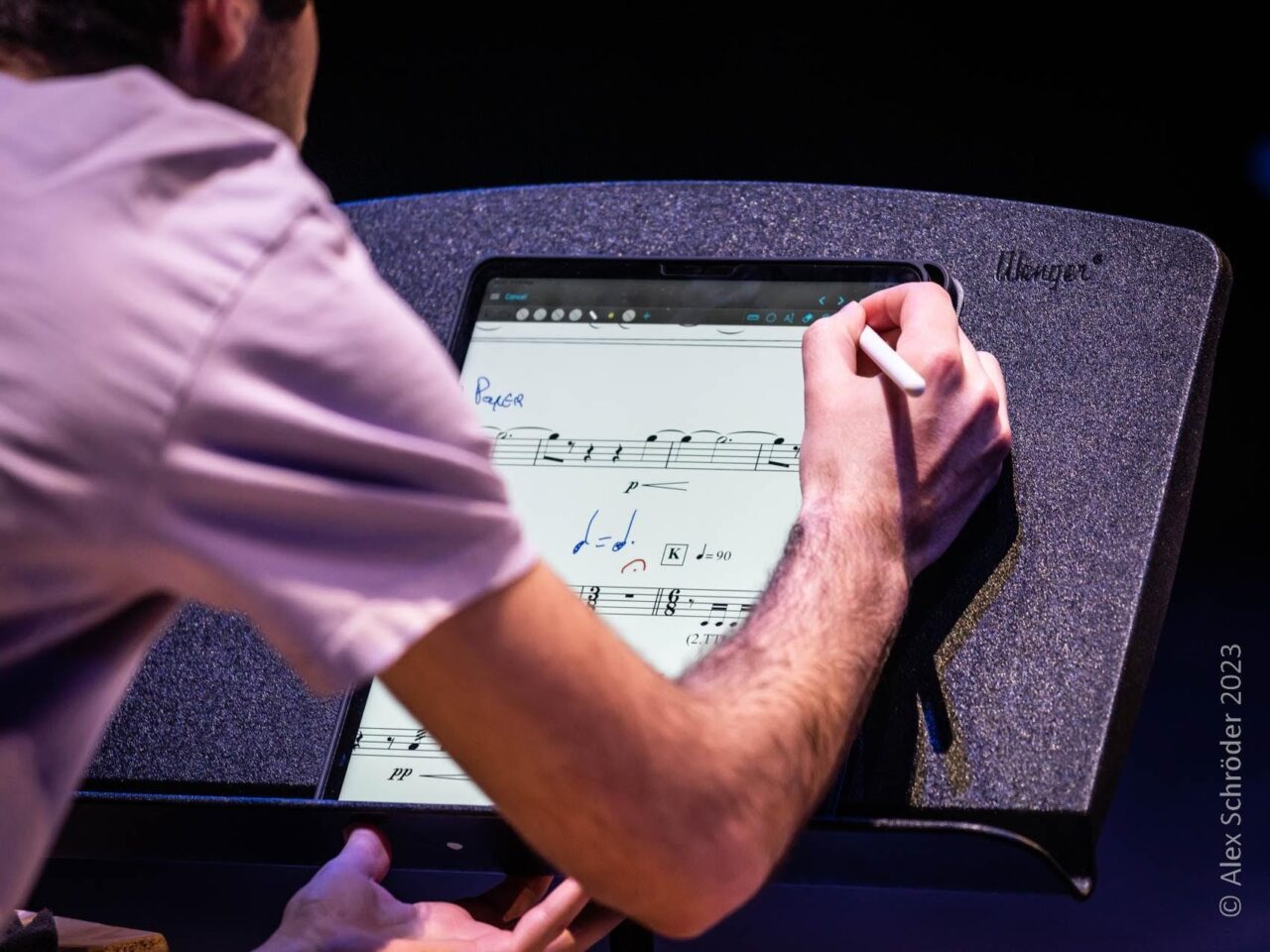Some projects are so valuable that they can just be done over and over again. One of these is the exchange project between the Royal Conservatoire and the Janáček Academy in Brno. Each year a brand-new ensemble is formed by 3 musicians from The Hague and 3 musicians from Brno, just to perform 6 premieres by 3 composers from The Hague and 3 composers from Brno.
Niko Schroeder was one of the lucky composers who took part in the project this year. Niko came from the United States and is now taking composition lessons and projects in the Artist Certificate Program. He tells us about his experiences in the Brno project.
‘The set-up of this project is really beautiful. We first got one week to work with the ensemble in The Hague and give a concert there, we went to Brno and we had another week to rehearse and then we gave a concert in Brno as well. It was really lovely because it already sounded good on the first concert, and then we had yet another week to refine it. It was very nice to rehearse in a nice new environment with good food and a lovely city.
We had a strong group of composers and we were able to sit down and get through the pieces relatively quickly, but of course, in a first rehearsal it sometimes takes some time to figure out the aleatoric or experimental notation. We were lucky that the players were super interested in getting to the bottom of that. For example, Zeynep Oktar, one of the composers from The Hague wrote a very cool piece for feedback, trombone and electric guitar. She used a transducer system on the base drum. There is not really a traditional way to notate this, you can’t just use notes on the staff.
The piece I wrote was called Hinkson Creek Park Trail Bridge. It is a bit of a departure from my other works because it is very slowly developing, it is changing over the course of seven minutes, but it develops so slowly that you don’t even notice until it happened. The reason that I settled on this topic is that the bridge, from the title, was an important place where I went to listen during the lockdown in the US. It was near a park and it was close enough to the city that you could hear the city but there were still a lot of nature sounds. The longer I sat there, the longer I listened, and the more that I heard. There were so many layers to the sound.
I was thinking about this project and the idea that 6 performers from countries all over Europe were getting together, who had never played together before. In five days, they didn’t only have to figure out how to play together but also how to listen to each other. So, I was trying to create something that made the ensemble listen in a different way than what they were used to, but also in a way that would bring them together.
And I think it worked, there is a risk to this sort of slow pieces: it is easy to count, and there are only like six different notes in the whole piece, which makes it very easy to assume that it doesn’t need much rehearsal time. But they really understood that there is something more to get from it if you give it your time and you give it your ears, and you give the other players your ears.
It was a very valuable experience to make this piece because I already wanted to try this kind of composing for some time. It was a very new direction for me, so to have the opportunity to have two whole weeks to spend in workshops and talk to the players and get feedback, and understand what they appreciated about the piece and what I could change to make it more comfortable for them was really valuable.
I think many of the meaningful conversations with the musicians, the other composers, and the conductor happened outside of rehearsals at dinner, at the bar, or walking around town.
I’ve never been to Czechia before so I had no idea what to expect of the culinary, architectural, and visual art culture. It was really delightful to try the food, and to have some fresh Czech Pilsner. The European musicians and composers thought it was very funny that I was walking up to the castle every day. But to me, it is really romantic that the city has a castle. Obviously, this never happens where I am from.
I really took it upon myself to really dig into the culture in between rehearsals. One of the most memorable nights was when Filip Zázvorka, who was involved in the project both as a composer and percussionist, took us to a bar where they played Moravian Folk music. Back in the States, I was playing folk music as well, so it was really great to hear the songs and to see how much it was still part of this culture. There were several moments when all people in the café just started singing along and of course, that’s an amazing experience for a group of composers and musicians.
To me, that makes it a meaningful exchange: meeting new people and then actually being in that environment. You can get six people to play together at any time, but to be in this new country, that’s what makes this project special.’
